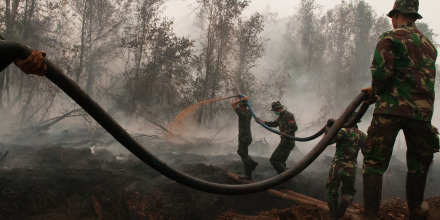Events
Indonesia Project Student Research Travel Grant Open
About the Grants The Indonesia Project Student Research Travel Grants assist domestic Honours and Masters students who are undertaking research on Indonesia. The first grants were offered in the 2014 academic year.
The grants are open to individuals of at least 18 years of age, and are currently enrolled or about to enrol in degree programs at the Honours or Masters level at an Australian university. The grants are open to Australian citizens or Australian permanent residents.
In 2024 we are pleased to make available up to three grants, each to a maximum value of $3,000.
Ruth Daroesman Graduate Study Grant Open
Each year the ANU College of Asia and the Pacific in conjunction with the ANU Indonesia Project may offer an award known as the Ruth Daroesman Graduate Study Grant.
The objective of the Grant is to support a graduate or HDR student in their research associated with Indonesia. Funding for this Grant has been provided by the Ruth Daroesman Endowment. This grant may be used for research expenses (including travel) directly related to the student’s academic interests or future career aspirations.
The Ruth Daroesman Endowment was established in 2013 in memory of Ruth Daroesman by Ruth’s family and friends.
Key Dates Applications open Wednesday 28 February 2024 Applications close Sunday 7 April 2024 Applications outcomes will be released by Friday 29 April 2024
Preference mismatch for environmental policy in Indonesia
We study Indonesian voters and politicians’ policy preferences over a suite of issues. We conducted concurrent surveys in advance of the 2024 Indonesian general election and, in a follow up, randomized the provision of information to candidates about voter preferences. We find that voters care about environmental issues more than politicians, and that politicians underestimate voters’ concern. Randomly providing information on voters’ preferences induced changes in politicians’ own stated policy preferences, especially on issues for which politicians initially underestimated voter support. However, information on voter preferences did not affect politicians’ willingness to support costly policy action on environmental issues, nor did it affect politicians’ vote share in the election.













